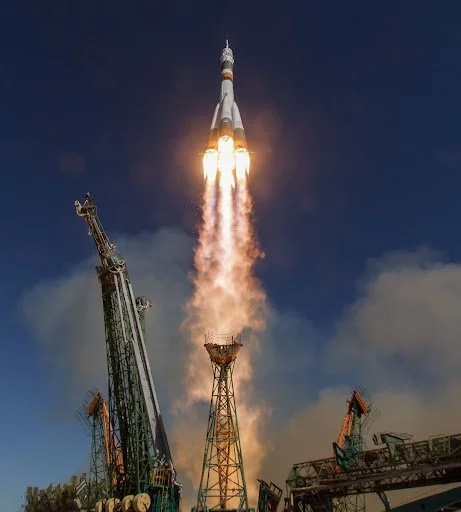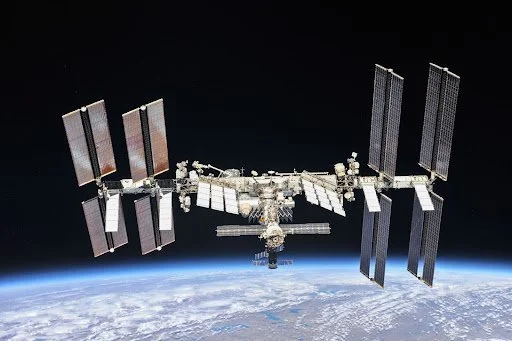Space Exploration in Jeopardy after Russian Invasion of Ukraine
The Soyuz MS-10 spacecraft is launched with American and Russian astronauts onboard. Photo: Bill Ingalls / NASA
In the past decade, space exploration began to regain the allure that it once had during the space race. Private companies and governments are on the cusp of breakthrough changes to space travel, this time including settlement on Mars, space tourism, and the mining of other planets.
Unfortunately, war in Ukraine is disrupting space exploration. The war threatened to harm prospects for the Ukrainian Space Agency after the destruction of critical infrastructure and a likely Russian occupation.
The Ukrainian Space Agency boasts 16,000 employees, nearly matching the size of NASA. Ukraine’s legacy of space exploration stretches back to the peak of the USSR space race where the Ukrainian city Dnipro was referred to as “Rocket City” for its contributions to missile production and the defense industry. Just last year, the Sich 2-30 satellite was launched by SpaceX – the first Ukrainian satellite in 10 years. The current conflict could last decades and rebuilding a once state-of-the-art program from scratch is likely to take even longer, if it is ever undertaken.
On the other side of the conflict, Russians have been at the forefront of space exploration for decades. Unlike their military and political counterparts, the Russian Roscosmos and agencies such as the European Space Agency have been cooperating on space exploration for decades. These joint missions include the eROSITA telescope, navigation satellites, and the International Space Station. In light of western sanctions on Russian industry and diplomatic breakdowns, these areas of cooperation are becoming increasingly difficult to navigate.
The International Space Station in 2018 Photo: Andrew Feustel / NASA
A particularly troubling area of distress is the ISS, given its importance to research that could not be done elsewhere. The Russian response to Western sanctions indicated a serious rift forming between Roscosmos and NASA over the future of the Space Station.
The head of Russia’s space program, Dmitry Rogozin, tweeted that “if you block cooperation with us, who will save the ISS from an uncontrolled deorbit and fall into the United States or Europe? There is also the option of dropping a 500-ton structure to India and China. Do you want to threaten them with such a prospect?” While these claims are indicative of the importance of Russian equipment to the ISS, NASA suggested that contributions from defense company Northrop Grumman and SpaceX could prevent catastrophe if Russian support is absent.
Although the US is not directly involved in the war, NASA is not isolated from the impacts of Russian belligerence. Russia halted shipment of its RD-180 rocket engine to America, an important part of NASA’s launch programs. While this could disrupt future plans, NASA has all the necessary equipment to execute upcoming flights and already planned a transition to rockets produced by Blue Origin after the Russian annexation of Crimea in 2014.
While the war is still young, it is clear that space exploration across the globe will be impacted by the current conflict in Ukraine. Whether or not this meaningfully impacts the lofty goals of space agencies will be determined by the ability of NASA, the European Space Agency, and private companies to prosper in outer space, independent of Russian technology.


